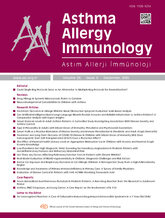


Mast cell diseases are a group of rare diseases with a broad clinical spectrum that develop as a result of abnormal proliferation or uncontrolled activation of mast cells. Systemic mastocytosis, one of these diseases, is characterized by the accumulation and activation of mast cells in various organs, primarily the bone marrow, but also the skin, liver, spleen, and gastrointestinal system. Clinical presentations can vary from mild symptoms such as skin redness and itching to life-threatening reactions such as cardiovascular instability and anaphylaxis. Drug-induced hypersensitivity reactions are a significant clinical problem in patients with mastocytosis. Nonsteroidal antiinflammatory drugs, antibiotics, radiocontrast agents, and perioperative agents are the main risk groups of drugs. These reactions may arise through immunological IgE-mediated mechanisms or direct stimulation of mast cells via receptors such as MRGPRX2. The potential for drug-induced reactions in individuals with mastocytosis is a cause for concern among physicians and patients, leading to unnecessary drug restrictions and mislabeling of allergies in clinical practice. This situation may limit patients` access to appropriate treatment and negatively affect their quality of life. This review summarizes the pathophysiological mechanisms underlying the risk of drug hypersensitivity in patients with mastocytosis, the factors contributing to the development of reactions, and safe management strategies based on the current literature. The aim is to improve understanding of the risks associated with drug use in mast cell disorders, prevent unnecessary pharmacological restrictions, support appropriate treatment approaches, and thereby enhance the efficacy and safety of patient management.